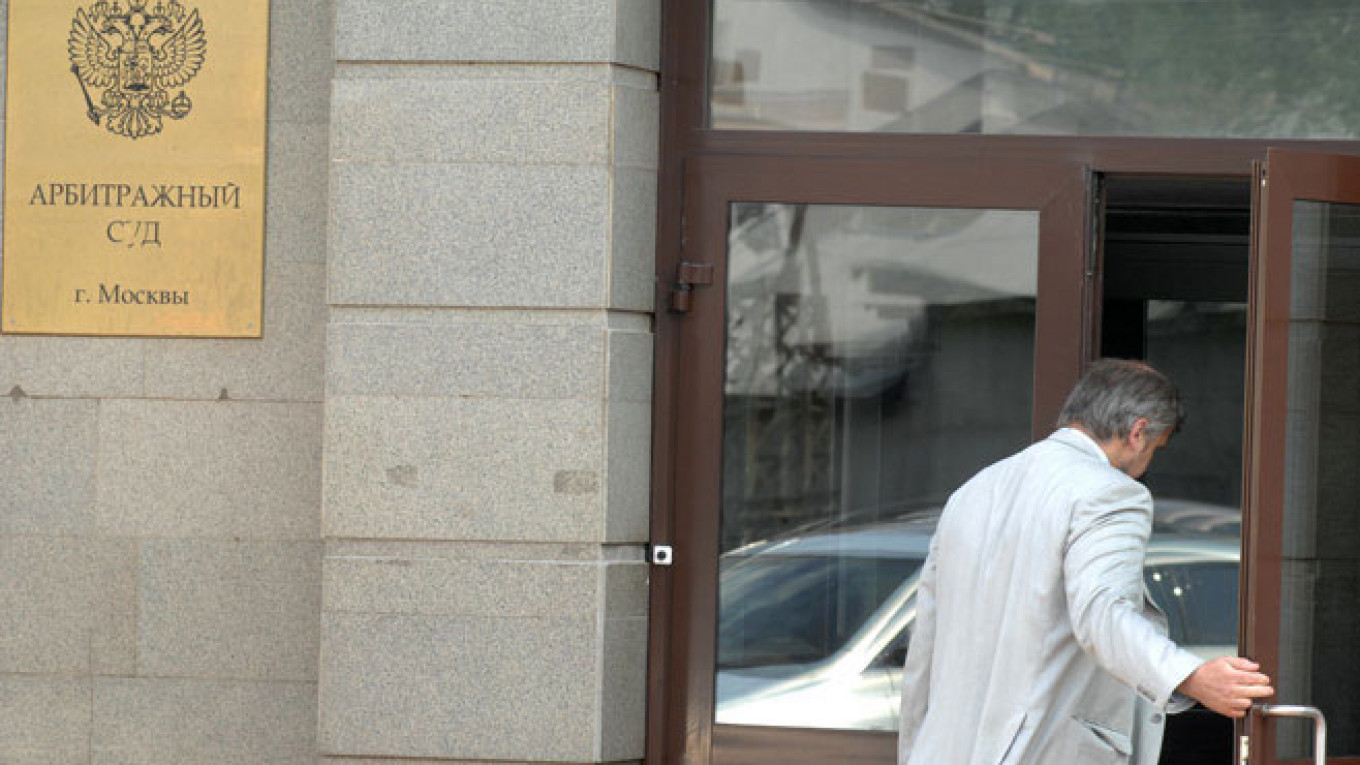Russia's highly anticipated law on personal bankruptcy came into force on Oct. 1. The bill had been under discussion since 2008.
However, President Vladimir Putin only signed it into law in late 2014 and legislators pushed back its introduction from July to October so as to give arbitration courts time to prepare.
According to the new law, any person whose debt exceeds 500,000 rubles and who has missed payments for more than 90 days can be declared bankrupt.
Both debtors and creditors can initiate bankruptcy proceedings. The court must appoint a financial manager to help the debtor and creditor reach an agreement on restructuring the debt or selling off the debtor's property.
The law comes into force at a difficult time. Consumer debt currently totals 6 trillion rubles ($90.8 billion) and mortgage debt stands at 3 trillion rubles ($45.4 billion). Estimates vary of the number of debtors likely to file for bankruptcy.
Collection agencies anticipate 200,000 cases, while the Federal Bailiffs Service expects 400,000 people to file. In all, almost 600,000 Russians qualify for bankruptcy.
Both bankers and borrowers consider the law a necessary measure, but they differ in their assessments of who will benefit most.
Banks argue that the law makes it too easy for debtors to evade responsibility, while debtors hold that the threshold of 500,000 rubles and three months of arrears is inflated so as to protect banks.
According to Sequoia Credit Consolidation head Yelena Dokuchayeva, everything depends on how the new law will work in practice. It is unclear how the arbitration courts will cope with what might be a doubling of their current workload.
It is also unclear how financial managers will cope: Russia has only 1,000 such professionals and they generally work on higher profile and higher paying corporate cases. They might be unwilling to limit themselves to the 10,000 ruble cap imposed by the law for personal bankruptcy proceedings.
Russian debtors must cover the fee for the financial manager and all other costs of their bankruptcy proceedings.
However, in Germany, for example, the federal budget assumes that expense.
Declaring bankruptcy frees debtors from the claims of creditors, but it reflects negatively on their credit history.
Information about the bankruptcy is posted in the public domain and such individuals are barred from holding executive corporate positions for three years.
The key question is how the authorities will manage the financial recovery mechanisms that are designed to restore debtors' solvency. In the United States, this responsibility is handled by credit unions — interbank associations that share credit data and seek mutually beneficial resolutions to problems.
As a result, the U.S. has approximately 180,000 to 250,000 bankruptcies per year.
That is far more than in Europe, but relatively few compared to the size of the private sector debt load.
Apparently, the Russian law that was long in coming will now slowly gain in practical experience from its application.
Nikolai Epple is a columnist at Vedomosti. This comment originally appeared in Vedomosti.
A Message from The Moscow Times:
Dear readers,
We are facing unprecedented challenges. Russia's Prosecutor General's Office has designated The Moscow Times as an "undesirable" organization, criminalizing our work and putting our staff at risk of prosecution. This follows our earlier unjust labeling as a "foreign agent."
These actions are direct attempts to silence independent journalism in Russia. The authorities claim our work "discredits the decisions of the Russian leadership." We see things differently: we strive to provide accurate, unbiased reporting on Russia.
We, the journalists of The Moscow Times, refuse to be silenced. But to continue our work, we need your help.
Your support, no matter how small, makes a world of difference. If you can, please support us monthly starting from just $2. It's quick to set up, and every contribution makes a significant impact.
By supporting The Moscow Times, you're defending open, independent journalism in the face of repression. Thank you for standing with us.
Remind me later.






